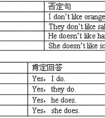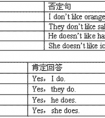词汇运用1. He often spends lots of time __________ with his friends online. (chat)2. Good _________with your trip to Hongkong. (luck)3. In my family everyon-七年级英语
题文
| 词汇运用 |
| 1. He often spends lots of time __________ with his friends online. (chat) 2. Good _________with your trip to Hongkong. (luck) 3. In my family everyone has __________ own computer. (they) 4. I sometimes go to school without ______ breakfast. (have) 5. I can't hear you __________, can you say it again?(well) 6. My brother and I are in different __________. (年级) 7. There're four __________ teachers in our class. (百) 8. The toilet is __________the teachers' office and our classroom. (在---之间) 9. You can ask the __________over there, maybe they know the way to the hospital.(警察) 10. It's hard for the little boy to __________herself. (穿衣服) |
答案
| 1. chatting 2. luck 3. their 4. having 5. well 6. grades 7. hundred 8. between 9. policemen 10. dress |
据专家权威分析,试题“词汇运用1. He often spends lots of time __________ with his..”主要考查你对 实义动词,可数名词(单数名词,复数名词),名词,基数词,物主代词,副词 等考点的理解。关于这些考点的“档案”如下:
实义动词可数名词(单数名词,复数名词)名词基数词物主代词副词
考点名称:实义动词
- 实意动词:
即行为动词,表示动作的动词。实义动词与系动词是相对的,能独立用作谓语。
它分为及物动词和不及物动词两种:
及物动词是指后面要求有直接宾语的动词;
不及物动词指后面不需要跟宾语的动词。 实意动词使用方法:
及物动词
后面必须跟宾语意义才完整的实义动词,叫做及物动词(transitive verb)。如:
I believe that the committee will consider our suggestion.我相信委员会将会考虑我们的建议。
“How long can I keep the book ?”Harry asked.哈里问:“这本书我可以借多久?”
Dr. Bethune set us a good example. 白求恩大夫给我们树立了好榜样。
Crude oil contains many useful substances.原油含有许多有用的物质。
不及物动词
本身意义完整后面不须跟宾语的实义动词,叫做不及物动词(intransitive verb)。如:
Birds fly.鸟会飞。
It happened in June 1932.这件事发生于一九三二年六月。
My watch stopped.我的表停了。
She spoke at the meeting yesterday evening. 她在昨天晚上的会上发了言。
兼作及物动词和不及物动词
英语里有不少实义动词可以兼作及物动词和不及物动词。这样的动词又有两种不同的情况
a)兼作及物动词和不及物动词时,意义不变。试比较:
Shall I begin at once?我可以立刻开始吗?(begin作不及物动词)
She began working as a librarian after she left school.她毕业后当图书馆管理员。(began作及物动词)
When did they leave Chicago?他们是什么时候离开芝加哥的?(leave 作及物动词)
They left last week. 他们是上周离开的。(left 作不及物动词)
b)兼作及物动词和不及物动词时,有时意义不尽相同。如:
Wash your hands before meals.饭前要洗手。
Does this cloth wash well? 这布经得起洗吗?- 英汉实意动词用法比较:
与汉语的比较,有时英语动词的及物和不及物的用法,与汉语的用法不一样,请注意下列两种情况:
a)有的动词在英语里只能用作不及物动词,而汉语则可用作及物动词,如arrive到达,agree同意,listen听。英语里这些动词后面常接介词。如:
We arrived at the railway station at noon.
我们于中午到达火车站。(at不能省去)
(比较:We reached the railway station at noon.)
Everybody listened to the lecture with great interest.
每个人都很有兴趣地听讲课。(to不可省去)
(比较:We all heard the lecture.)
Do they agree to the plan?他们同意这个计划吗?(to不可省去)
b)有的动词在英语里能用作及物动词,而在汉语里则不能用作及物动词,如serve为…服务。
Our children are taught to serve the people wholeheartedly.
我们的儿童被教以全心全意为人民服务
用于be动词之后,实义动词之前。 实意动词的用法:
肯定句:
主语+动词过去式+其它
否定句:
主语+助动词didn‘t+动词原型+其他
一般过去式:
Did+主语+动词原型+其他
考点名称:可数名词(单数名词,复数名词)
- 可数名词:
是指能以数目来计算,可以分成个体的人或东西;
因此它有复数形式,当它的复数形式在句子中作主语时,句子的谓语也应用复数形式。 - 名词单数变复数的规则:
巧记以f\fe结尾的可数名词复数情况 构成方法 例词 读音 一般情况 在词尾加-s desk→desks
map→maps-s在清辅音后发/s/ day→days
girl→girls-s在元音和浊辅音后发/z/ 以s,x,ch,sh结尾的词 在词尾加-es bus→buses box→boxes watch→watches fish→fishes -es发/iz/音 以辅音字母加-y结尾的词 变y为i再加-es family→families
factory→factories
party→patries-ies发/iz/音 以元音字母加-y结尾的词 在词尾加-s day→days
boy→boys
key→keys-s发/z/音 以f或fe结尾的词 变f或fe为v再加-es knife→knives
life→lives
wife→wives
half→halves-ves发/vz/音 以辅音字母加-o结尾的词 在词尾加-es potato→potatoes
tomato→tomatoes
hero→heroes-es发/z/音 以元音字母加-o结尾的词 在词尾加-s radio→radios
zoo→zoos-s发/z/音
妻子骑牛拿起刀,wife,calf,knife ↑
追得贼狼满街跑,thief,wolf →→→变f或fe为v,再加es
碰倒架子丧己命,shelf,self,life ↓
手帕树叶半空飘。handkerchief,leaf,half ↓ - 名词复数的不规则变化:
1.不规则形式:
child→children(儿童)
man→men(男人)
woman→women (女人)
an Englishman→two Englishmen(英国人)
foot→feet(脚)
tooth→teeth(牙)
mouse→mice(老鼠)
ox →oxen(公牛)
goose→geese(鹅)
2.单复同形:
deer,sheep,fish,Chinese,Japanese, species,means,Swiss
除人民币,美元、英镑、法郎等都有复数形式。
如:a dollar,two dollars; a meter,twometers
3.集体名词,以单数形式出现,但实为复数:
people police cattle是复数
(OK :a person,a policeman,ahead of cattle,the English,the British,the French,the Chinese,the Japanese,the Swiss )
- 最新内容
- 相关内容
- 网友推荐
- 图文推荐
| [家长教育] 孩子为什么会和父母感情疏离? (2019-07-14) |
| [教师分享] 给远方姐姐的一封信 (2018-11-07) |
| [教师分享] 伸缩门 (2018-11-07) |
| [教师分享] 回家乡 (2018-11-07) |
| [教师分享] 是风味也是人间 (2018-11-07) |
| [教师分享] 一句格言的启示 (2018-11-07) |
| [教师分享] 无规矩不成方圆 (2018-11-07) |
| [教师分享] 第十届全国教育名家论坛有感(二) (2018-11-07) |
| [教师分享] 贪玩的小狗 (2018-11-07) |
| [教师分享] 未命名文章 (2018-11-07) |


![How much does it ______ to fly from Yancheng to Hainan Island?[ ]A. cost B. payC. spend D. take-七年级英语](http://www.00-edu.com/d/file/ks/4/2/shiyidongci/2020-01-05/small7dcf2f05998de63e10cc3629787031c81578210087.png)

![He always _____TV in the evening. He _____ listening to the radio. [ ]A. watch, don't like B. watches, doesn't like C. watching, don't like D. watch, do-七年级英语](http://www.00-edu.com/d/file/ks/4/2/shiyidongci/2020-01-05/small45d599b4a60b84e61cec210bfbf051f51578214524.png)
![I'd rather ___ to the Mcdonald's Restaurant because I like to listen to quiet music.[ ]A. to go B. going C. go D. went-八年级英语](http://www.00-edu.com/d/file/ks/4/2/shiyidongci/2020-01-05/small1767bba1727fef2c035c53dcbd9bc20e1578209517.png)
